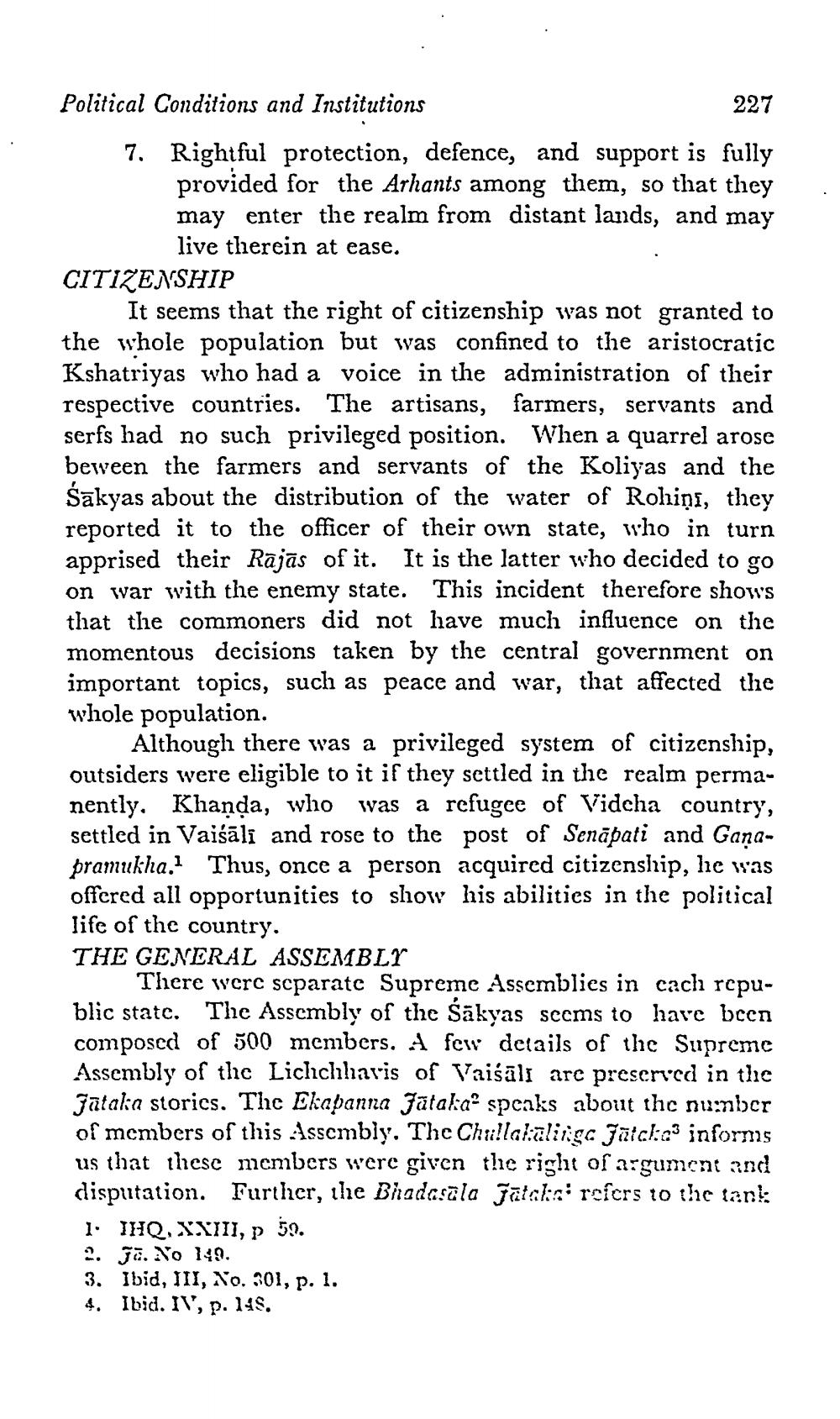________________
Political Conditions and Institutions
227 7. Rightful protection, defence, and support is fully
provided for the Arhants among them, so that they may enter the realm from distant lands, and may
live therein at ease. CITIZENSHIP
It seems that the right of citizenship was not granted to the whole population but was confined to the aristocratic Kshatriyas who had a voice in the administration of their respective countries. The artisans, farmers, servants and serfs had no such privileged position. When a quarrel arose beween the farmers and servants of the Koliyas and the Sākyas about the distribution of the water of Rohiņi, they reported it to the officer of their own state, who in turn apprised their Rājās of it. It is the latter who decided to go on war with the enemy state. This incident therefore shows that the commoners did not have much influence on the momentous decisions taken by the central government on important topics, such as peace and war, that affected the whole population.
Although there was a privileged system of citizenship, outsiders were eligible to it if they settled in the realm permanently, Khanda, who was a refugee of Vidcha country, settled in Vaiśāli and rose to the post of Senāpati and Ganapramukha. Thus, once a person acquired citizenship, he was offered all opportunities to show his abilities in the political life of the country. THE GENERAL ASSEMBLY
There werc scparate Supreme Assemblies in cach rcpublic state. The Assembly of the Sākyas seems to have been composed of 500 members. A few details of the Supreme Assembly of the Lichchlaris of Vaiśāli are preserved in the Jätako storics. The Ekapanna Jataka' speaks about the nunber of members of this Assembly. The Challalaliiga Jaicka informis us that these members were given the right of argument and disputation. Further, the Bhadasala Jūtoka: refers to the land: 1. IHQ, XXIII, p 59. 2. Jā. No 149. 3. Ibid, III, Xo. 301, p. 1. 4. Ibid. IV', p. 148.




